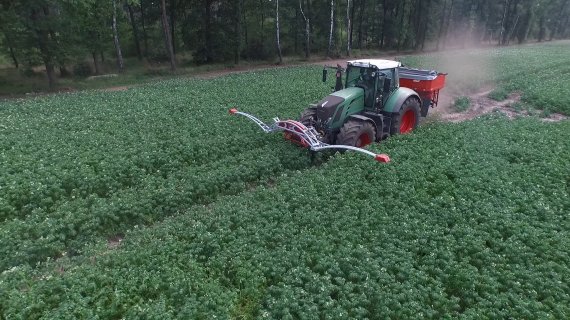New sensors, meters and software systems for planning, implementing and analysing our food production are following each other onto the market in quick succession. Robots are taking over some of the work on the farm, and big data on prices, market conditions and consumer behaviour exercise more and more influence on chain management.
See smart farming in action at the potato farm of Jacob van den Borne in Reusel, North Brabant.
music: www.bensound.com
Smart farming is going to lead to a shift in power relations in food chains, expects Sjaak Wolfert, Research Coordinator of the EU project Internet of Food and Farm. This project started in January and is part of the EU programme Internet of Things.
Linking data
Wolfert, who works at Wageningen Economic Research, is studying the potential and uses of digital production in the agricultural sector. He and his European partners are mainly developing technology for on and around the farm, but they are also interested in logistics and consumers in the food chain. The total research budget for his project is 30 million euros.
In many cases, a lot of information technology is already in place, and the main issue is to link the data, explains Wolfert. For example, weather forecasts and information obtained from satellites and tractors can be linked with data on cows. ‘The emphasis in our project lies on analysing and combining information in order to arrive at good advice for farmers and consumers.’
Owner
The question is who is the owner of all this data. One of the current questions is: who owns the information from milking robots? Lely, a company that produces milking robots, says: this information belongs to us. Does it? From a legal perspective, it is not possible to establish ownership of data, says Wolfert. ‘This means the farmer and the provider have to make agreements on the use of the data.’ There are now many companies active in the field of digital data processing and smart farming. And nearly all of them have their own platform and service. The government needs to stay alert with respect to the way smart farming is developing, says the researcher.
Read thefull articlein Resource magazine.

